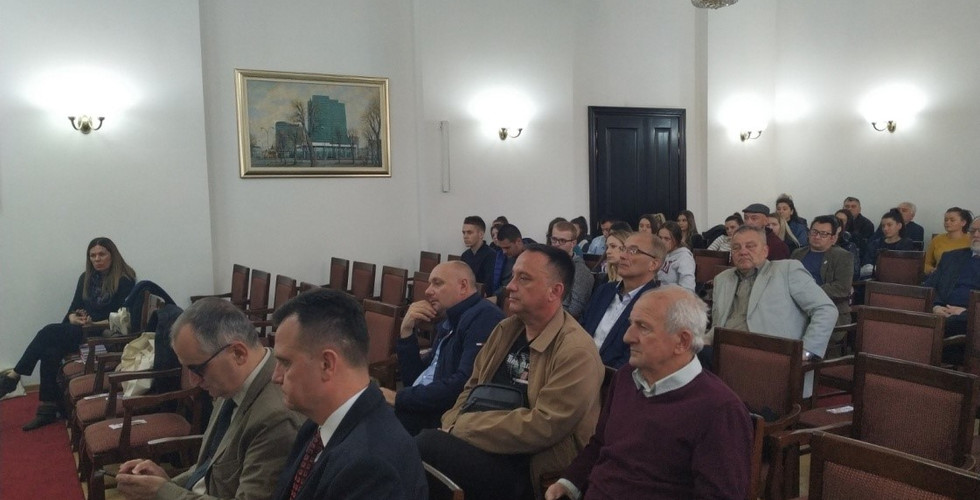The book "Si Jinping – The Chinese Dream" by the author Aleksandar Novacic, longtime journalist of Tanjug in Beijing, was promoted on 14 March 2019 in the premises of the Academy of Sciences and Arts of the Republic of Srpska.
The Confucius Institute and the Faculty of Security Sciences at the University of Banja Luka were the organizers of this promotion.
The book talks about the rise of the current Chinese president and about changes that happened in China during the past and this century from the perspective of the author who has witnessed many relevant events of contemporary Chinese history.
In his book, the author talks about the life of Si Jinping which was marked by the great hopes of the fifties of the last century, the dark events of the sixties, the victory of the sense of the seventies, and the enormous economic and social progress of the eighties.
Si became the president of China after it had become the second world power. The book is about how China has changed over the years and what its dramatic change means for the world.
- It is not a classic biography of Si Jinping, the president of China. It is a story about him and about his life, but it is more of a story about China, about contemporary China, about its development and its relationships with the world - said Aleksandar Novacic, author of the book.
In promoting his book, Novacic also mentioned that the "One Belt, One Road" economic project represents an alternative to the current world order and that it offers cooperation at mutual benefit of all partners involved.
Aleksandar Novacic is a journalist with fifteen-year experience of a correspondent from Beijing. He graduated political science at the University of Belgrade. For several years he worked in the Yugoslav news agency TANJUG and the Beta News Agency. He was a correspondent from China also for the Fonet News Agency, the newspapers Borba, Nasa Borba, Vecernje novosti, Nova Makedonija and the weekly NIN.
He first arrived in China as a correspondent in 1976, in the year of the Great Tangsan earthquake, the death of Mao Cetunga, the capture of the "Gang of Four" and the end of the Cultural Revolution. Since then, he has reported firsthand about the boom of the "Chinese Spring" and was among the first foreign correspondents to visit the "closed" Chinese provinces and areas of the first economic reforms.


























Comments